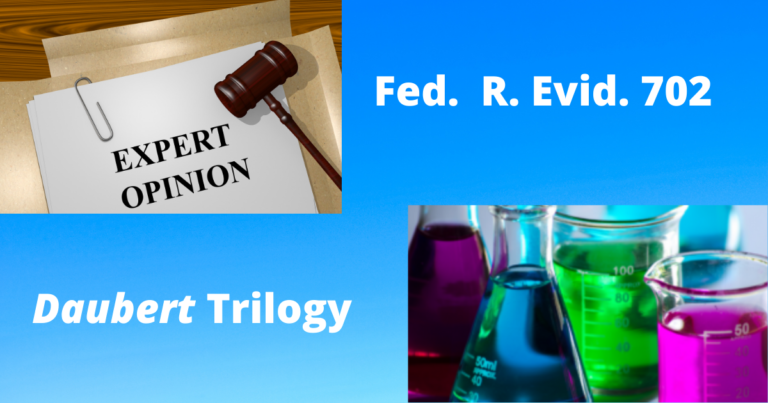3M Company v. Amador
The Atlantic Legal Foundation (ALF), joined by Washington Legal Foundation and DRI-The Voice of the Defense Bar, has filed an amicus brief urging the Supreme Court to hear an appeal that challenges the Eighth Circuit’s lax interpretation and application of Federal Rule of Evidence 702 (Testimony by Expert Witnesses). Rule 702 was amended more than 20 years ago to reflect the Court’s landmark “Daubert trilogy” of opinions—Daubert v. Merrell Dow Pharmaceuticals, Inc., 509 U.S. 579 (1993); General Electric Co. v. Joiner, 522 U.S. 136 (1997); and Kumho Tire Co. v. Carmichael, 526 U.S. 137 (1999)—concerning the criteria governing admissibility of expert testimony. In essence, Rule 702 requires federal district court judges to act as “gatekeepers” who shield juries from expert testimony that is not reliable. Inadmissible testimony includes “junk science,” such as made-for litigation expert opinions that attempt to establish causation in product liability and toxic tort litigation. The amicus brief urges the Supreme Court to grant review and reinforce Rule 702 so that federal courts throughout the United States adhere to the Rule’s purpose by keeping junk science away from juries.
3M Company v. Amador is part of multidistrict product liability litigation involving the “Bair Hugger,” a vital, body-warming medical device widely used by hospitals. The company’s certiorari petition describes the case background relevant to the expert testimony admissibility questions presented by the appeal.
The amicus brief, authored by Capital Appellate Advocacy founder and ALF Executive Vice President & General Counsel Larry Ebner, explains that Daubert, Joiner, and Rule 702 are intended to keep junk science out of federal courtrooms. Nonetheless, some federal courts of appeals, such as the First, Eighth, and Ninth Circuits, have been resistant to Rule 702. They have narrowed district court judges’ gatekeeper role and allowed juries, including in multidistrict product liability and toxic tort litigation, to be exposed to junk science and other unreliable scientific testimony that should have been ruled inadmissible. As the amicus brief explains, allowing juries to hear junk science testimony can mislead and confuse jurors, and deprive defendants of a fair trial and due process. Read more about the 3M case here.
Additional Supreme Court amicus briefs authored by Larry Ebner discussing junk science include petition-stage briefs in Monsanto Co. v. Hardeman (involving Roundup herbicide) and Johnson & Johnson v. Ingham (involving talcum powder).

